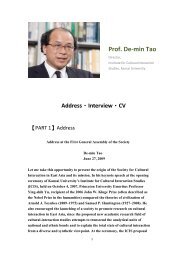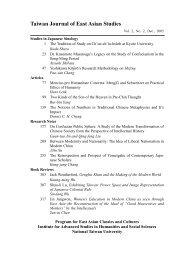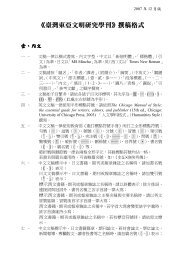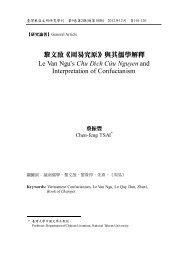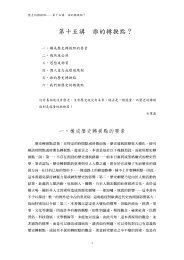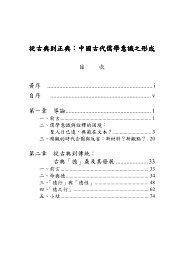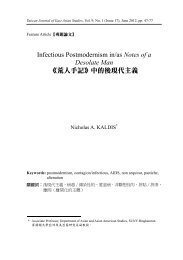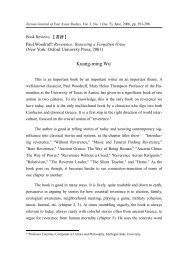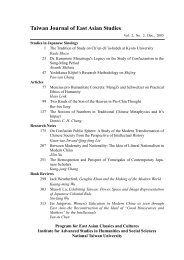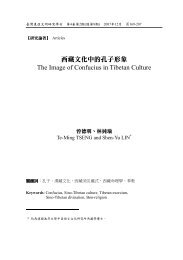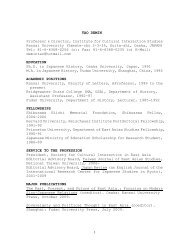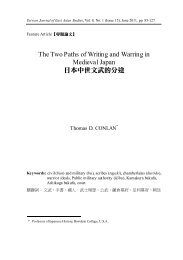臺灣東亞文明研究學刊 - 東亞經典與文化研究計畫 - 國立臺灣大學
臺灣東亞文明研究學刊 - 東亞經典與文化研究計畫 - 國立臺灣大學
臺灣東亞文明研究學刊 - 東亞經典與文化研究計畫 - 國立臺灣大學
You also want an ePaper? Increase the reach of your titles
YUMPU automatically turns print PDFs into web optimized ePapers that Google loves.
228 Taiwan Journal of East Asian Studies, Vol. 4, No. 2 (Iss. 8), Dec., 2007<br />
Throughout this period, Scots who chose to think about the state of European<br />
politics drew upon a set of assumptions which were more or less common to the<br />
language of European political thought. Their Europe was a state system dominated<br />
by the great composite monarchies whose rivalries continually provoked the fear<br />
that the sub-continent might become a universal monarchy under the rule of Spain,<br />
or later, France. These 'enormous monarchies' as David Hume called them, Spain<br />
and France in particular, were seen as the creation of ambitious dynasts who had set<br />
out to extend their dominions by means of dynastic marriages, political unions and<br />
conquest and presented their rulers with the problem of preserving their new, often<br />
dangerously heterogenous realms from rebellion, civil war and religious divisions.<br />
It was a situation that ensured that much contemporary political analysis and<br />
statecraft would be concerned with the problem of constructing political, military<br />
and ecclesiastical institutions which could hold political and religious faction in<br />
check and create the conditions which would encourage the growth of political<br />
stability and international peace. In the hands of great theorists of government and<br />
politics like Grotius, Hobbes and Pufendorf, this suggested that absolute monarchy<br />
was the only viable mechanism for creating integrated polities. Like seventeenth<br />
century France and Spain, Britain was a composite monarchy whose backbone was<br />
the Union of the Crowns of 1603, a loose dynastic union between England and<br />
Scotland which had left each country with its own church, parliament and systems<br />
of government. From the first, it proved to be a notably unstable political union and<br />
successive kings found to their cost that Scotland had remained a remote,<br />
potentially rebellious country difficult to govern from London. Indeed, the only<br />
ruler who had any success in integrating the government of the two countries was<br />
Oliver Cromwell, the dominating figure in the government of the country during the<br />
republican Interregnum of 1649-1660, and he was only able to do so because he had<br />
the resources of the most efficient army in Europe to call on. But Cromwell's<br />
experiment in direct rule was hated and never forgotten by Scots and it ensured that<br />
Scottish political thinking would always return to the problem of maintaining the<br />
independence of a small nation in an increasingly imperial age and to the related<br />
iv



